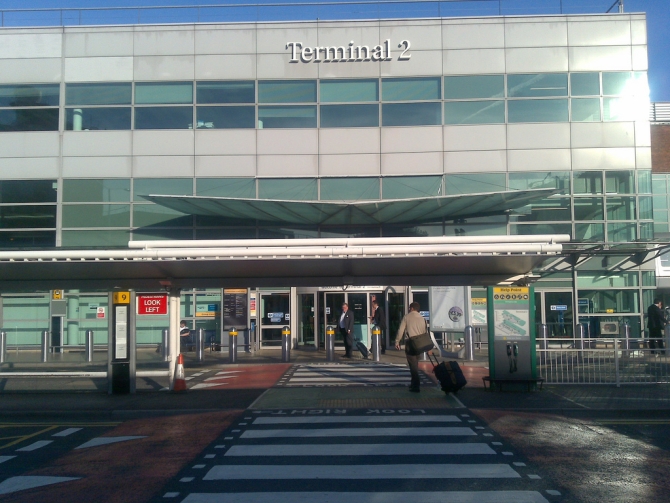John Lewis is opening its first airport store as part of a “Best of British” plan for the new Terminal 2 at London’s Heathrow Airport. The new £2.5bn terminal will have 69 retail and catering units when it opens this June. The majority confirmed John Holland Kaye, Heathrow’s development director, will be “disproportionately” devoted to British brands. “We need brands that are identifiable and attractive to a wide range of passengers, but if we can support a British brand then we will,” he added. “We want to openly and proudly promote Britain.”

John Lewis’ decision to open its first store away from town and city centres marks the start of its international expansion strategy aimed at increased global awareness of the 150-year-old John Lewis name. The 3,600sq ft store, to be located on the top floor of the the departure lounge, will showcase the partnership’s own-brand products, designer collaborations and exclusive home and gift items.
“Outside the UK you only really know John Lewis if you travel to the US,” said the company’s operations director, Sean Allam. “This is an opportunity to get our brand in front of a much larger customer base.”
Sharing space between the £1m John Lewis store and British fashion houses like Mulberry and Cath Kidston will be celebrity chef Heston Blumenthal, who will also be opening his first airport restaurant at Heathrow. Better known for his Michelin-starred eateries The Fat Duck, in Bray, and London’s Mandarin Oriental Hotel, his Terminal 2 restaurant will serve travellers British classics like fish and chips and steak and kidney pudding.
Analysts have highlighted the potential of airport retail sites and overseas ambitions for some time. Nick Bubb is an independent retail specialist. “More people are shopping at airports these days and looking for the big luxury brands,” he said. “Any move by John Lewis to move into the airport market makes sense. And if firms like Debenhams can survive overseas, then John Lewis certainly can.”
Among the 23 airlines operating out of Terminal 2 will be Aer Lingus, Lufthansa, Singapore Airlines, Air China and US carrier United. “That,” says Holland Kaye, “makes it particularly attractive for British retailers that want to expand internationally. We want to be a central part of the UK economy. It’s not just about improving the journey for passengers, but also promoting some great British companies.”
Previous Post
Google squares up to Apple with First Flagship Store